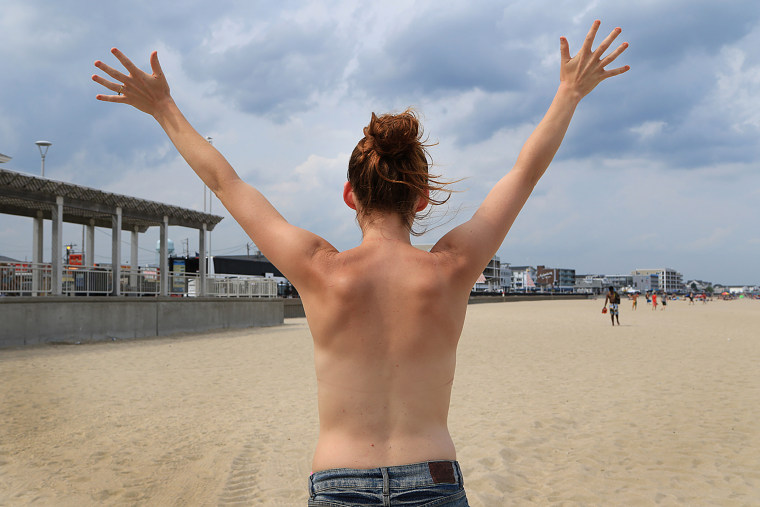WASHINGTON — Three New Hampshire women are asking the Supreme Court to declare that a city ordinance banning women from appearing topless in public violates the Constitution by treating men and women differently.
Their rallying cry is "Free the Nipple," a global motto for women seeking equal treatment.
The case began in 2016 when Ginger Pierro did her yoga exercises topless at a lakeside beach in Laconia and was arrested for violating a city ordinance banning public nudity, including "the showing of the female breast with less than a fully opaque covering any part of the nipple."
Three days later two other women, Heidi Lilley and Kia Sinclair, went to the same beach and went topless to protest the arrest. They, too, were charged with violating the nudity law.
All three challenged their convictions but lost in the New Hampshire courts. Now they're asking the Supreme Court to hear their appeal when the court's new term begins in October.
They say topless bans are discriminatory because men can appear in public without their shirts. The bans also further the "sexualized objectification of women," according to their Supreme Court legal brief.
The New Hampshire Supreme Court rejected their challenge, acknowledging that the law treats men and women differently.
But it said the sexes "are not fungible" with respect to the traditional understanding of what constitutes nudity. Public exposure of the female breast "almost invariably conveys sexual overtones," the state court said. Most lower courts have come to the same conclusion.
But in February, the federal appeals court for the 10th Circuit struck down a topless ban in Fort Collins, near Denver.
The ruling found no justification for treating men and women differently when they wish to bare their chests. Society's sexualization, the court said, "has engrained in us the stereotype that the primary purpose for women's breasts is sex, not feeding babies." Such a stereotype, the ruling said, "serves the function of keeping women in their place."
The Supreme Court will likely announce in early October whether it will hear the case.

